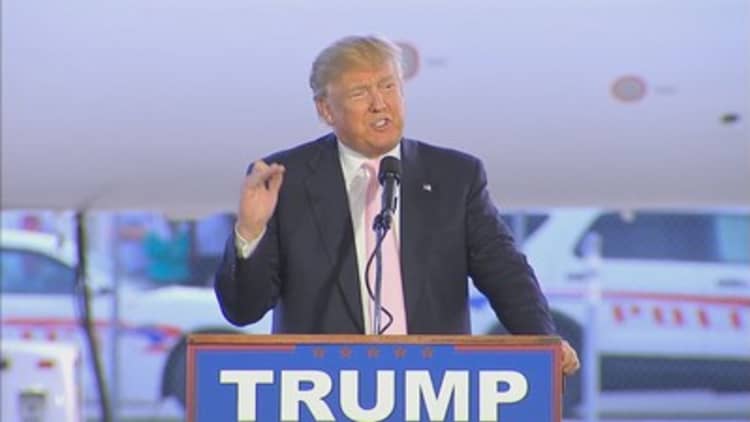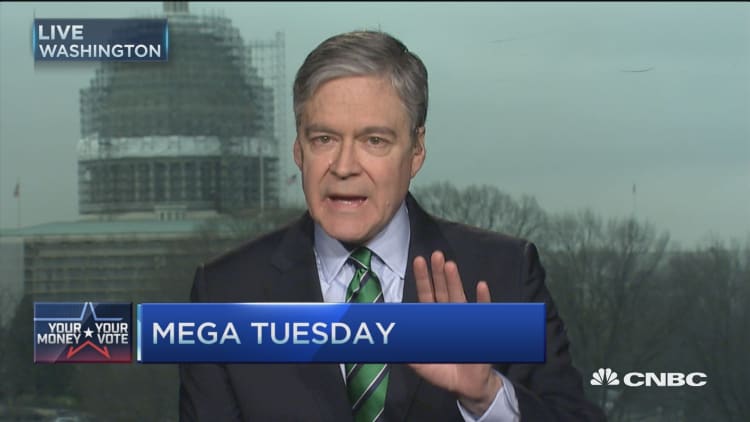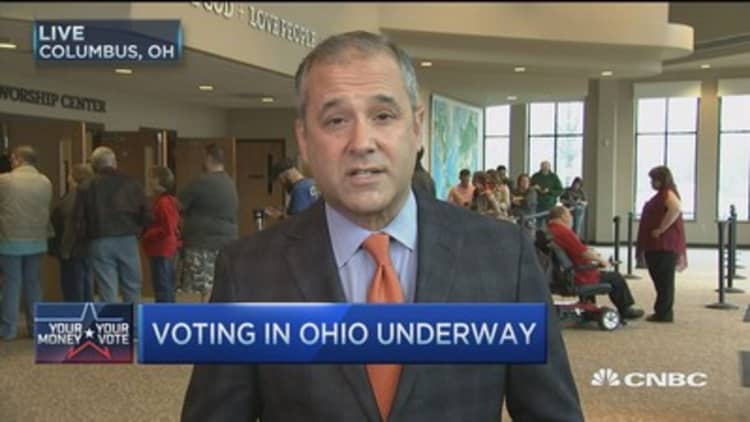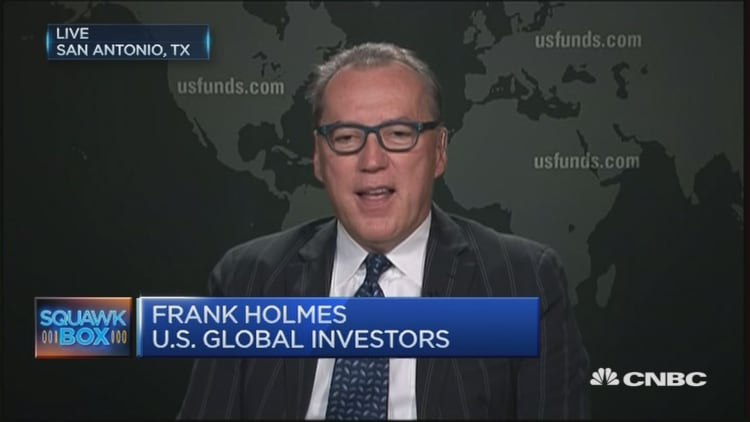


As polls open for US primaries in Ohio and Florida, the political elite in Tokyo is starting to confront a disconcerting idea: that their indispensable US ally could actually elect Donald Trump as president.
The controversial businessman, now favorite for the Republican nomination, hits Japan regularly in his stump speeches for supposedly unfair trade practices and freeriding on US military protection.
According to a number of officials, Tokyo is still fairly relaxed about Mr Trump's views on security, regarding the US-Japan alliance as strong enough to cope, but they are becoming increasingly alarmed by bipartisan attacks on the Trans-Pacific Partnership, a trade deal crucial to Prime Minister Shinzo Abe.
"To start with they just thought 'he's funny'," said Masatoshi Honda, a professor of politics at Kinjo University. "But recently they're starting to worry — what happens if Trump wins?"
Like the political establishment in Washington, Tokyo has been slow to take Mr Trump seriously, not least because his rhetoric seems stuck in the 1980s, before Japan suffered two decades of economic stagnation and its population began to decline.

"I will take his remarks seriously when he is elected president," said Kuni Miyake, head of the Foreign Policy Institute in Tokyo.
"Media overreaction creates people like Trump, who represent the dark side of the US," he added. "I believe in the western democracies — in the end they'll come up with a healthy outcome."
But Tokyo is realizing that even if Mr Trump loses, his rhetoric is seeping into the popular consciousness, and other US politicians are changing their positions in response.
More from the Financial Times :
Trump basks as Rubio wilts in Florida
Pity the personal shopper as snack packs replace Gucci bags
Goldman buys pensions robo-adviser
Japan regards the US military presence as crucial to its long-run security position given China's rise, and counts on the US nuclear umbrella to deter attack by the regime in North Korea.
"Still fresh in our memory is the tremendous damage another Washington outsider, Jimmy Carter, did to East Asia's security equation," said one foreign policy figure with ties to the Abe government. "Had Carter indeed withdrawn US troops from the Korean peninsula at the peak of the cold war, the world as we know it might well not have existed."
Foreign policy officials take some comfort from improvements in the US relationship under Mr Abe, as well as efforts to expand Japan's friendships to Australia, India and beyond, making its security dealings with Washington more multilateral than in the past.
On TPP, however, they worry that Mr Trump's rhetoric will make it hard for Congress to ratify the deal, whoever wins. As well as the direct benefits from greater trade, the Abe administration regards TPP as one of its best tools for forcing the Japanese economy to reform in areas such as agriculture.
"When did we beat Japan at anything? They send their cars over by the millions, and what do we do? When was the last time you saw a Chevrolet in Tokyo? It doesn't exist, folks. They beat us all the time," Mr Trump said when he announced his candidacy last year.
Hillary Clinton, the likely Democratic nominee, recently toughened her rhetoric on TPP after losing the Michigan primary to rival Bernie Sanders. She wants tougher "rules of origin" standards, which specify where motor parts must come from for a vehicle to enter the US tax-free.
Tokyo regards access to the US car market as its main gain from TPP. "I don't think there is any chance of renegotiating over car tariffs," says Naohiro Yashiro, a professor at Showa Women's University in Tokyo.
The growing threat that TPP will fail in the US casts a shadow over Japan's own debate about ratification, which is due to start after the budget passes this month.
"There is opposition to TPP in Japan as well," said Mr Honda. "If Japan passed it and then it didn't go through in the US it'd do huge damage to the Abe administration."



